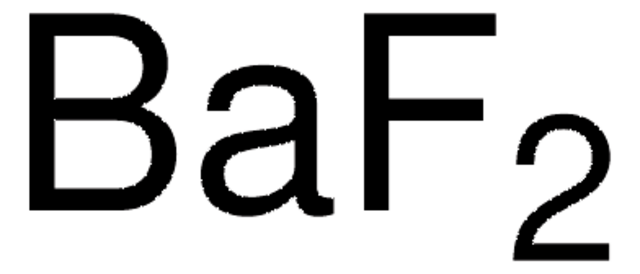289167
Thulium(III) oxide
99.9% trace metals basis
Synonym(s):
Thulia, Thulium oxide
Sign Into View Organizational & Contract Pricing
All Photos(2)
About This Item
Linear Formula:
Tm2O3
CAS Number:
Molecular Weight:
385.87
EC Number:
MDL number:
UNSPSC Code:
12352303
PubChem Substance ID:
NACRES:
NA.23
Recommended Products
Assay
99.9% trace metals basis
form
powder
reaction suitability
reagent type: catalyst
core: thulium
SMILES string
O=[Tm]O[Tm]=O
InChI
1S/3O.2Tm
InChI key
CWEYWFRFCUNVEY-UHFFFAOYSA-N
Looking for similar products? Visit Product Comparison Guide
Storage Class Code
11 - Combustible Solids
WGK
WGK 3
Flash Point(F)
Not applicable
Flash Point(C)
Not applicable
Personal Protective Equipment
dust mask type N95 (US), Eyeshields, Gloves
Certificates of Analysis (COA)
Search for Certificates of Analysis (COA) by entering the products Lot/Batch Number. Lot and Batch Numbers can be found on a product’s label following the words ‘Lot’ or ‘Batch’.
Already Own This Product?
Find documentation for the products that you have recently purchased in the Document Library.
Customers Also Viewed
B E Lambert et al.
Radiation and environmental biophysics, 20(1), 11-20 (1981-01-01)
The short term effects on the free macrophage population in the mouse lung, following inhalation of thulium-170 oxide, have been studied, with a view to using the system as a model with which to compare the short term effects of
G X Chen et al.
Journal of fluorescence, 17(3), 301-307 (2007-03-30)
We report on 2.0-microm emission characteristic and energy transfer of Ho3+-doped tellurite glass sensitized by Tm3+ upon excitation of a conventional 808 nm laser diode. The Judd-Ofelt strength parameters, spontaneous radiative transition probabilities and radiative lifetime of Ho3+ have been
B Chen et al.
Guang pu xue yu guang pu fen xi = Guang pu, 21(3), 287-289 (2003-09-02)
In this work, we have a designation and preparation of MFT glasses for upconversion, the glasses consisted of TeO2 and fluoride: PbF2, AlF3, BaF2, NaF and the impurity Tm2O3. In this glass system the oxide improve forming ability, the fluorides
Zhengze Yu et al.
ACS nano, 9(11), 11064-11074 (2015-10-13)
Photodynamic therapy (PDT) is a well-established modality for cancer therapy, which locally kills cancer cells when light irradiates a photosensitizer. However, conventional PDT is often limited by the extremely short lifespan and severely limited diffusion distance of reactive oxygen species
Our team of scientists has experience in all areas of research including Life Science, Material Science, Chemical Synthesis, Chromatography, Analytical and many others.
Contact Technical Service














